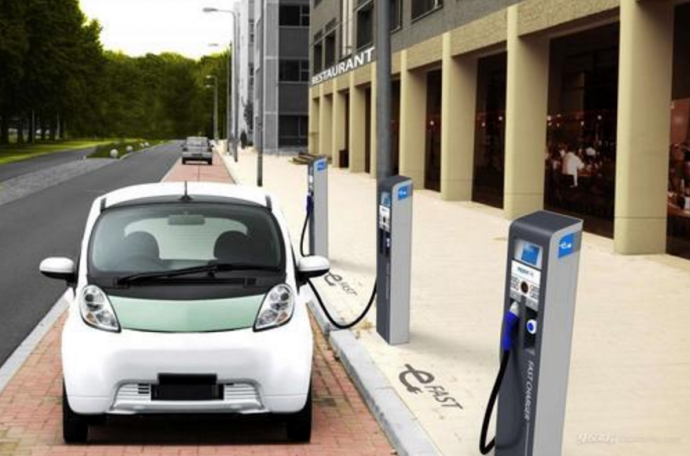BERLIN, Jan. 17 (Xinhua) -- Austrian automaker Magna Steyr and Chinese electronic vehicle maker Beijing Electric Vehicles (BJEV) on Tuesday celebrated the opening of a new development center.
The development center will serve as a joint platform for developing and building premium electric vehicles (EVs) for Chinese consumers.
HIGH-QUALITY COOPERATION
The joint platform is located in east China's Jiangsu Province, which includes two newly-established joint ventures aimed at developing high-end smart EVs for the Chinese market.
The project dates back to April 8, 2018, when a strategic cooperation agreement was signed between Xu Heyi, chairman of China's BAIC Group, and Guenther Apfalter, president of Magna Europe & Magna Steyr.
"The first objective is that we are going to develop new premium EVs for the Chinese market, and this center will shoulder that responsibility," Karl Friedrich Stracke, president of Fahrzeugtechnik & Engineering of Magna Steyr, told Xinhua at the opening celebration Tuesday.
"China has a good opportunity to lead the global EV market in the future, and therefore it's very important to develop new EVs for the Chinese market," he said, adding that Magna Steyr will be the first automotive contract manufacturer in China.
According to the agreement, the new ventures will take over an existing BAIC manufacturing plant in Jiangsu Province, and the new EVs are expected to roll off the assembly line in 2020, with an annual capacity of 180,000 vehicles.
Earlier this month, the European Commission announced its approval of the establishment of the two joint ventures under the European Union Merger Regulation.
"The approval of the European Commission shows that this is high-quality cooperation between strong alliances, which should be given full affirmation and recognition," Lian Qingfeng, spokesman of the BJEV, told Xinhua recently.
"Thus, we are firmly confident about our cooperation in the next step," he added.
LONG-HELD DREAM
"Investment in the Chinese market is a key part of our geographic strategy and the cooperation with BJEV not only has strategic significance, but also provides a valuable opportunity for both companies," Don Walker, CEO of Magna International, said at the signing ceremony in June 2017.
China surpassed the United States in 2015 to become the largest EV market and has maintained a fast growth rate in the past years. In 2018, over 1.2 million new EVs were sold in the Chinese market, including 984,000 pure EVs with a year-on-year increase of 50.8 percent.
There are currently no comparable domestic brand EVs to compete with Tesla in China's high-end vehicle market, but an increasing number of local challengers are springing up, aiming to provide diverse choices for Chinese consumers in the future.
Xu believed the establishment of the joint ventures will benefit both Magna and BAIC and further strengthen their business growth in China.
"Based on an open and sharing platform, together we will be devoted to the research and development of new-generation EVs to lift the innovation and manufacturing of the EV industry to a new level," Xu said.
As the first listed new EV maker, BJEV sold 15,8000 pure electric vehicles in 2018, with a year-on-year increase of 53.11 percent, and has been the sales champion in the domestic market since 2013.
"These joint venture operations mark a historic milestone for Magna. For the first time, we will be providing our customers with cars engineered and built outside Austria," Walker said at the signing ceremony in June 2017.
Magna, which has a history of more than 100 years in vehicle production, is able to manufacture vehicles with conventional, hybrid and electric power trains, said Walker, adding that Magna is excited to bring the technologies to a market like China, which boasts abundant opportunities.
Magna International has hired more than 22,700 employees at 47 plants and 12 engineering centers in China.
SUSTAINABLE COLLABORATION
Magna started its business in China in the 1990s. For the past decades, China's development in the automotive industry has been faster than that of any other region in the world. China's total sales volume of cars reached 28 million in 2018.
"Our cooperation is based on respective advantages, to form a strong alliance, and finally to fulfill everyone's strengths," Lian told Xinhua at the headquarters of BJEV, adding that by providing each other with one's individual needs, "sustainable cooperation will be achieved."
China has been promoting the development of new energy vehicles in recent years to help cut pollution. The number of new energy vehicles in the country is predicted to reach 5 million by 2020, according to the China Association of Automobile Manufacturers.
The cooperation between the two companies not only supports the BJEV production line, but also provides a new momentum for the entire Chinese new energy vehicle industry.
"Our Chinese partner is the largest electric vehicle manufacturer in China. Together we want to lift the quality of the products to a higher level," Stracke said.
(Xinhua correspondents Zhai Wei, Tian Dongdong, Ren Liying in Brussels, Zhang Qi in Dublin and Xia Ke in Beijing also contributed to the report.)




 A single purchase
A single purchase









